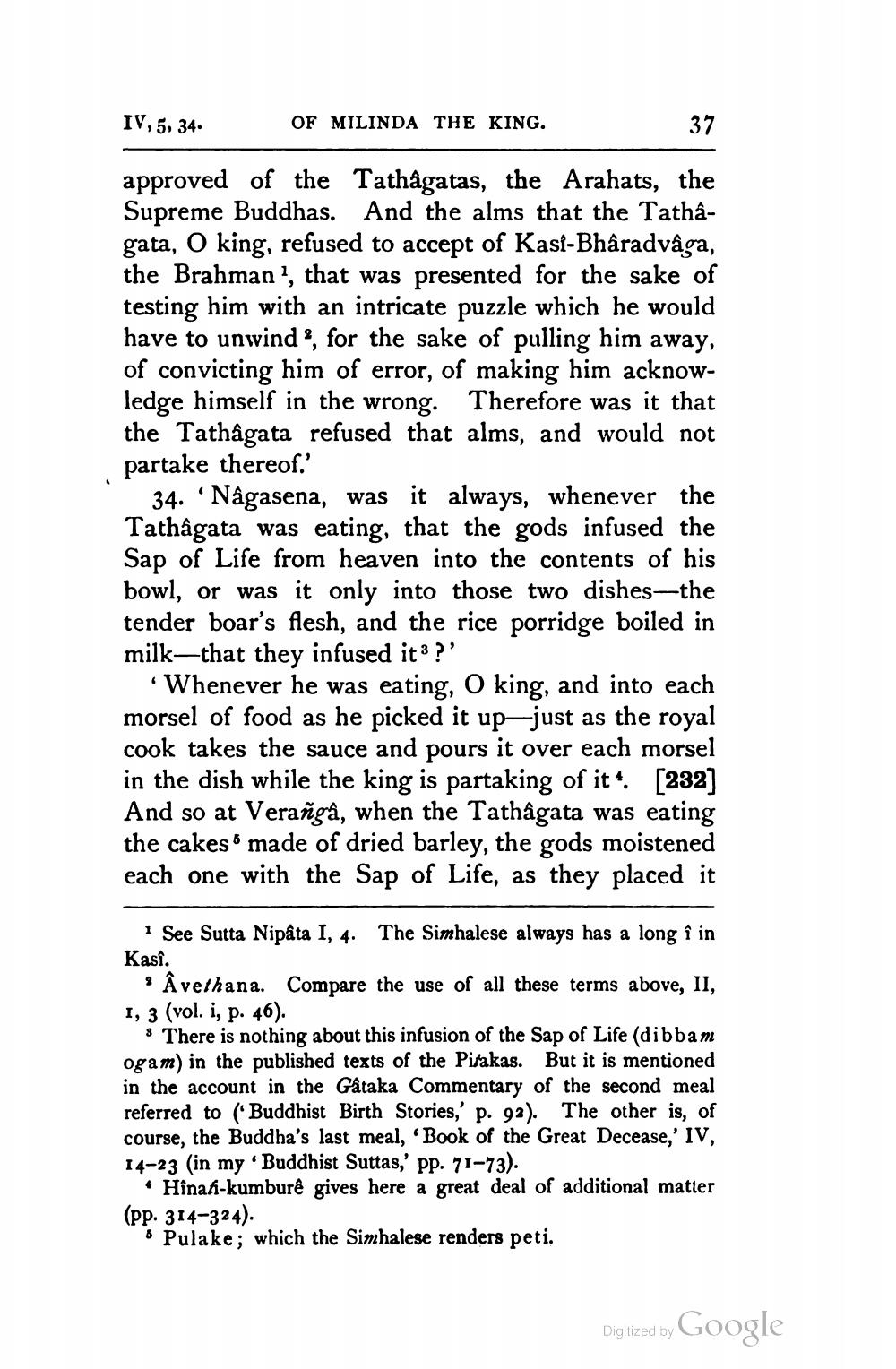________________
37
approved of the Tathagatas, the Arahats, the Supreme Buddhas. And the alms that the Tathâgata, O king, refused to accept of Kast-Bhâradvâga, the Brahman, that was presented for the sake of testing him with an intricate puzzle which he would have to unwind, for the sake of pulling him away, of convicting him of error, of making him acknowledge himself in the wrong. Therefore was it that the Tathagata refused that alms, and would not partake thereof.'
34. Nâgasena, was it always, whenever the Tathagata was eating, that the gods infused the Sap of Life from heaven into the contents of his bowl, or was it only into those two dishes-the tender boar's flesh, and the rice porridge boiled in milk-that they infused it?'
IV, 5, 34.
OF MILINDA THE KING.
'Whenever he was eating, O king, and into each morsel of food as he picked it up-just as the royal cook takes the sauce and pours it over each morsel in the dish while the king is partaking of it. [232] And so at Verañgâ, when the Tathâgata was eating the cakes made of dried barley, the gods moistened each one with the Sap of Life, as they placed it
1 See Sutta Nipâta I, 4. The Simhalese always has a long î in Kasi.
Avethana. Compare the use of all these terms above, II, 1, 3 (vol. i, p. 46).
There is nothing about this infusion of the Sap of Life (dibbam ogam) in the published texts of the Pitakas. But it is mentioned in the account in the Gâtaka Commentary of the second meal referred to ('Buddhist Birth Stories,' p. 92). The other is, of course, the Buddha's last meal, 'Book of the Great Decease,' IV, 14-23 (in my 'Buddhist Suttas,' pp. 71-73).
• Hînani-kumburê gives here a great deal of additional matter (pp. 314-324).
Pulake; which the Simhalese renders peti.
Digitized by Google




